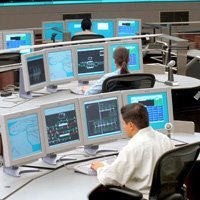
Siemens is a leading technology business and one of the largest electrical and electronics engineering companies in the world. In the UK, it employs over 20,000 people and is in the top three electrical and electronics companies in the world.
It has been a pioneer in innovation since 1843 when Siemens installed the first street light in Godalming, Surrey. In 2006, Siemens UK invested over £74.4 million on research and development.
The company designs and manufactures products and services for both industrial customers and consumers. It operates in three main sectors:
- In industry, Siemens develops systems for transport, for example, London”s traffic monitoring for its congestion charge scheme. It is also the second largest provider of trains for major UK rail companies like FirstGroup. Siemens also provides lighting and electrical systems for major construction projects.
- In energy, Siemens’ work is wide-ranging. It makes systems for transmitting and distributing power for power companies including building power stations and wind farms. It also provides energy metering services, for example, water meters for businesses and consumers.
- In healthcare, it specialises in equipment to help medical diagnosis, such as MRI scanners and imaging technology. It also provides equipment for testing blood in laboratories.
Siemens’ technology appears in every aspect of everyday life, for example:
- the electronic ‘eye’ (Hawk Eye) helps umpires in tennis and cricket matches
- 9 out of 10 cars contain Siemens products
- 20,000 domestic products like toasters are used in homes every day
- systems such as Pelican crossings keep people safe. Car parking systems help guide traffic quickly to free spaces, keeping traffic moving and reducing pollution on the roads
To keep its world-leading position and grow in a competitive environment, Siemens aims to deliver quality products and services. To do this, it needs people with first class levels of skill, knowledge and capability in engineering, IT and business.
The size and varied nature of its business means that Siemens requires many different types of people to fill a wide range of roles across the company. These include skilled factory workers, trade apprenticeships, designers and managers.
This case study explores how Siemens manages its ongoing need for skills through training and development.
Identifying training needs
For a business to be competitive, it is important that it has the right number of people with the right skills in the right jobs. Workforce planning enables Siemens to audit its current staff numbers and the skills it has in place as well as identify where it has skills gaps needed to meet its business objectives.
For instance, Siemens is relocating its main plant in Lincoln to a bigger site outside the main city. This will require new skills for the work to be done there. A plan has been constructed to analyse which skills the company has and what training will be needed for staff to use the new technology in the new location.
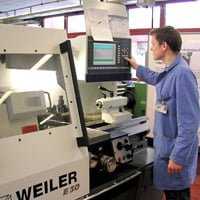
Siemens needs new skills for many reasons:
- to maintain competitive advantage, in ensuring Siemens has people with the right skills to develop new technologies and innovations
- to ensure Siemens has a pipeline of talent and minimal knowledge gaps, for example, due to retirement
- to fill a gap following the promotion of existing employees
Siemens is a business focused on innovation. This means it needs to anticipate and respond to rapid changes in the external business environment. For example, climate change and the growing emphasis on its carbon footprint has massively increased Siemens focus on wind turbines and renewable energy sources to address this.
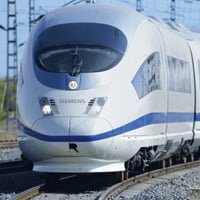
Siemens needs to attract employees with the appropriate skills, either by recruiting people into the organisation or by training existing employees to develop more skills.
A recent example of opportunities is the forthcoming 2012 Olympic Games in London. Siemens helped advise the Olympic bid and has great opportunities in providing security, healthcare provisions, media and communications technology for the Games. If it wins the bid for these provisions it will need to ensure it has the right people to deliver results.
Training
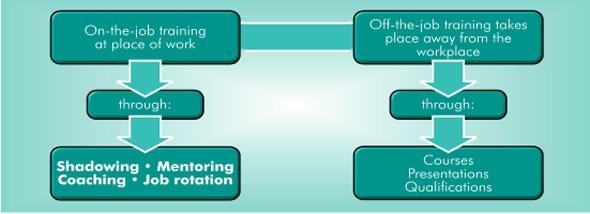
Training involves teaching new skills or extending the skills employees already have. There are two forms of training.
As well as induction training, where new employees learn the basic information they need to begin working, Siemens has three main development programmes designed for ‘Entry Level Talent’, i.e. those beginning their career with Siemens after education.
Apprenticeships
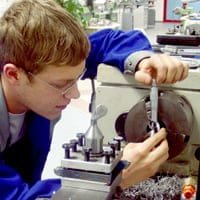
Siemens offers a variety of technical apprenticeships, aimed at school leavers who want to ‘earn as they learn’. Apprentices can join a variety of engineering/IT apprenticeships across a variety of locations in the UK, although the majority start their working life from their home town working at their local Siemens site.
Apprenticeship training is a combination of off-thejob college training and on-the-job work experience. Apprentices work to achieve their HND qualifications in their related field. Entry requirements vary depending on the programme, but fundamentally applicants require good communication skills and the ability to work in a team.
Siemens believes apprenticeships provide a clear route in developing staff for the future growth of the organisation.
Siemens Commercial Academy
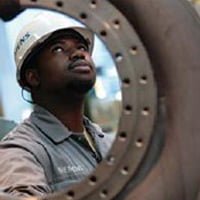
The Siemens Commercial Academy was launched in 2005 to further enhance the pipeline of financial and commercial capability within Siemens. The programme lasts four years and is regarded as an alternative to going directly to university.
Aimed at students who have a keen interest in Business and Finance, the programme enables students to rotate around various finance and commercial placements including Accounting, HR, Procurement and Corporate areas.
The trainees who join the programme split their time between studying towards an HND in Business with Finance and working at Siemens. Students study towards the degree at the European College of Business Management, as well as take part in personel development training such as communication and presentation skills. IT courses and German language training are also available.
Siemens Graduate Programmes
Siemens recruits graduates into three core areas of the business:
- Engineering including electrical/electronic, mechanical/mechatronic systems, broadcast, process and manufacturing
- IT covering research, development, design and consultancy
- Business including finance, HR, sales, project and operational management
All Siemens graduate recruits are treated as individuals. They enter the business with relevant skills, knowledge and experience and the potential to do many different roles. Each graduate has a discussion with his or her line manager when they start, to decide on their individual training and development plan.
Where appropriate Siemens supports graduates to gain further qualifications. These include gaining chartered engineer status through institutions such as IET or IMechE. The typical graduate profile is varied.
Craig Finlayson graduated from the University of Paisley with a degree in Information Technology. He worked on the BBC account in London within the project finance team. He now works in Sales Support and Portfolio on various projects.
Anna Carder, HR Graduate, joined Siemens in 2006 from Aston University with a BSc in Managerial and Administrative Studies. Anna is currently in her third and final placement in the Recruitment & Sourcing team of Global Shared Services. She has previously worked in two other placements in Corporate Personnel where she worked as part of the Talent Management team followed by an HR operational placement within Siemens Traffic Controls in Poole. Siemens is currently supporting Anna in her studies for her CIPD qualification through distance learning.
Development
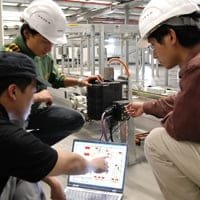
The costs of recruiting staff are high. It is far more cost effective to keep good staff. Siemens need well-trained employees with good key skills and capabilities, especially communication and team working skills.
This gives Siemens a competitive advantage as employees will be more flexible, adaptable to change and be more creative and innovative. They do their jobs better and are able to develop into other roles in the future.
Siemens implemented the Siemens Graduate Development Programme in 2005, as a means of developing graduates with the essential skills set they need in their everyday role and to equip them for a long-term career at Siemens.

Every graduate that joins Siemens regardless of role or location joins the 2 year programme. This consists of 9 modules including team working, customer focus, project management, communication skills, and business writing. The training is hosted at a number of Siemens sites, so graduates get exposure to different parts of Siemens, learn about the business, and network amongst the graduate population.
By improving the development opportunities, employees feel the company values them.

The motivation theories of Herzberg and Maslow show that staff work better when valued. This delivers long-term commitment and ensures benefits to the company.
Evaluation of training and development
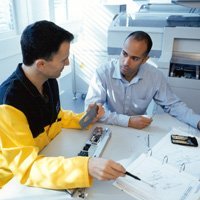
Well-trained employees provide a number of benefits that contribute to a business’ competitive advantage.
To measure the effectiveness of its training and development, Siemens uses an appraisal system, known as a Performance Management process. Employees and their line managers agree objectives at the beginning of a placement and progress is then monitored formally and informally throughout the placement. This helps to focus everyone on the developing needs of the business.
Annually, the results form the basis of a staff dialogue where the employee’s manager reviews the progress towards the objectives that have been set. Feedback is discussed with the employee and any development needs are captured in order to decide appropriate training. Together, new objectives for the following year ahead are set. In some instances, appraisals are linked to pay reviews. In these cases, pay rises depend on employees meeting or exceeding their objectives.
There are several benefits for Siemens in using appraisal. It can:
- ensure that all training is being used well and for the best interests of the company
- keep all staff up-to-date in a fast changing business
- make sure that staff are well motivated
- get feedback from staff on changes
- make sure staff are involved in changes.
Conclusion
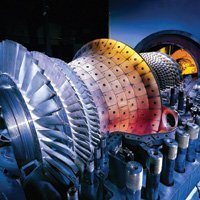
Training and development helps the growth of a business.
Siemens has a clear focus on having a well-motivated and trained workforce. The company needs to have motivated and confident staff who have up-to-date skills in order to remain competitive. In addition, well-trained staff are an asset to the business and help to retain customers.
Well-trained staff who remain with the business mean that customers enjoy continuity. This contributes to customer loyalty and leads to repeat business.
Staff who feel valued stay longer in a company. This means that Siemens” costs of recruitment can be reduced, resulting in cost savings across the organisation.
